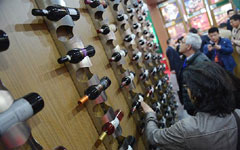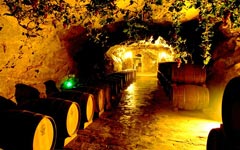Hiring Chinese-speaking assistants, opening Chinese social media websites, designing labels that appeal to Chinese consumers, and organizing tasting events in China are other common ways for French chateaus to attract Chinese buyers.
Cuvelier says that her chateau plans to organize wine-themed tours for potential Chinese buyers, which would enable them to visit the vineyards, see the winemaking process and taste the wine at the chateau.

|
 |
"We want to reach out to people who are really interested in wines and those who can afford the trip," she says.
"We want to do something special for the Chinese market. From our specially designed wine labels to large tasting events, our purpose is to ring the bells in the minds of Chinese consumers," Cuvelier says.
The Cuvelier family has been in the wine business for 210 years and it started as a wine merchant in Lille in northern France. In 1903, the family bought the Chateau Le Crock, a mid-tier vineyard in Saint Estephe in the well-known Medoc.
The family expanded the business in 1920 by purchasing two additional vineyards, one of which, the Chateau Leoville Poyferre, has become the most popular brand of the family's wine business.
Cuvelier's cousin, Didier Cuvelier, took over the business in 1979 and became the general manager of the chateau since then. Anne Cuvelier says she is gathering ideas for a special promotion of the brand, which she hopes to be adapted to the Chinese market.
"We want to make sure they understand the wine and the work behind it. It would be a pity if a bottle is opened just because it is expensive," she says, adding that marketing of the brand will start in big Chinese cities and then expand to smaller ones.
"You have to be there to build the brand. You have to show your face and your wines for a market that is very eager to learn and to taste different wines," she says.
